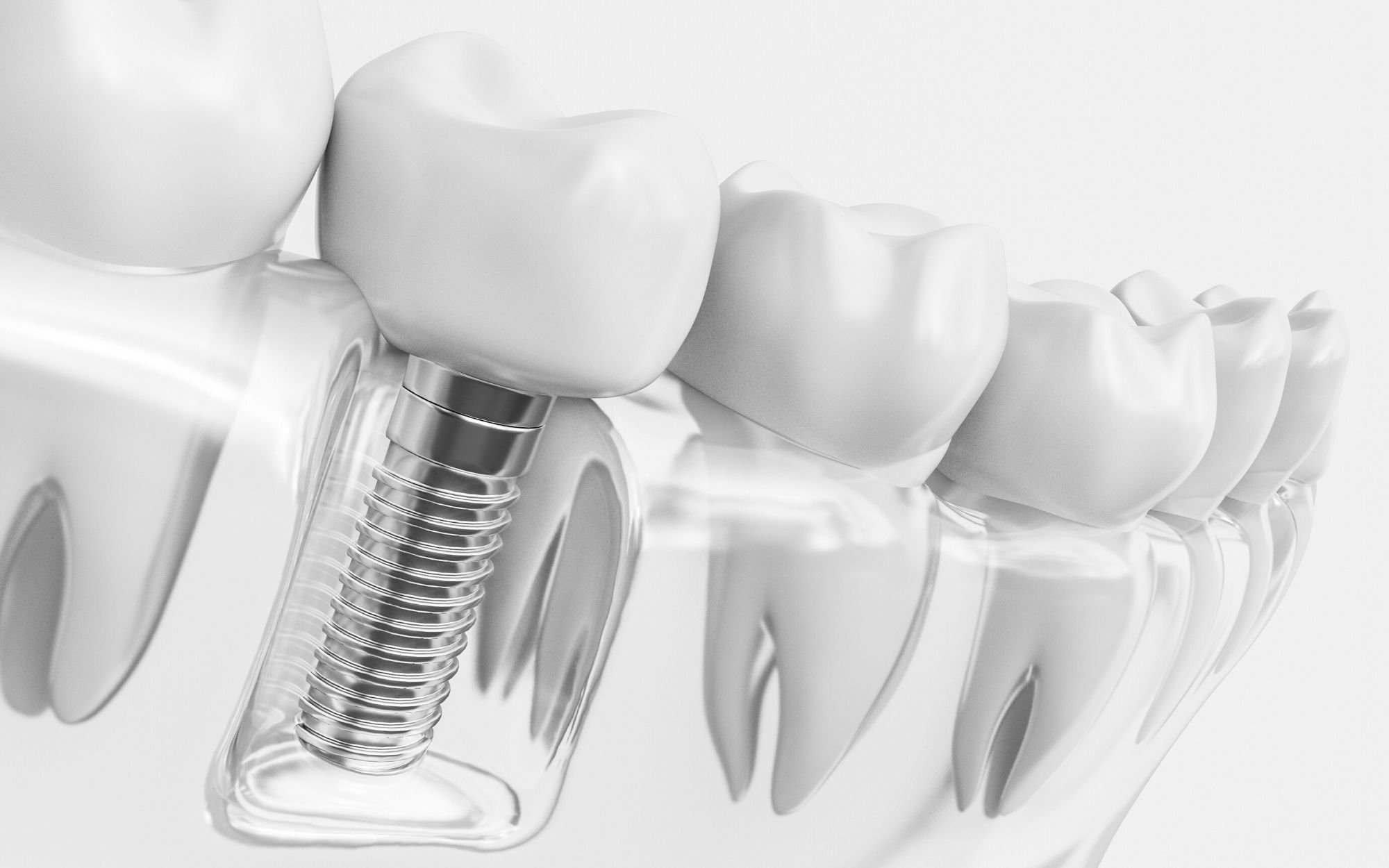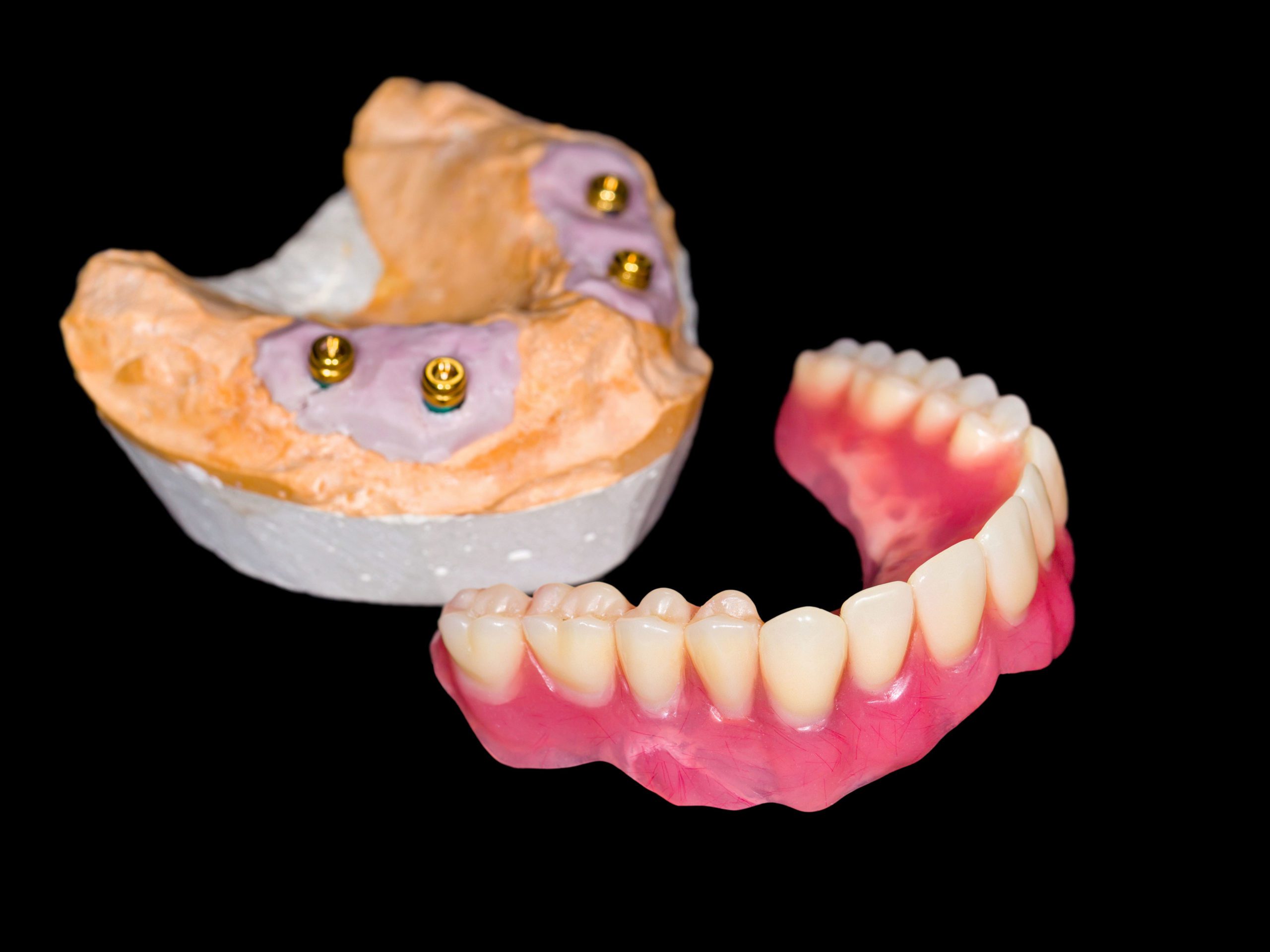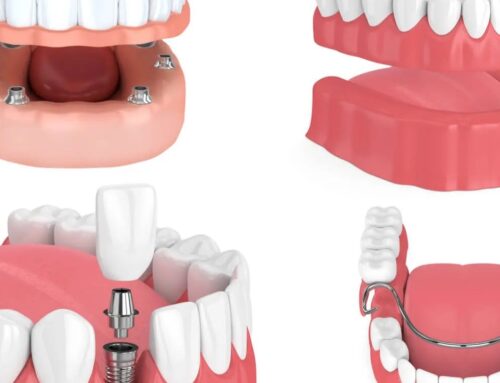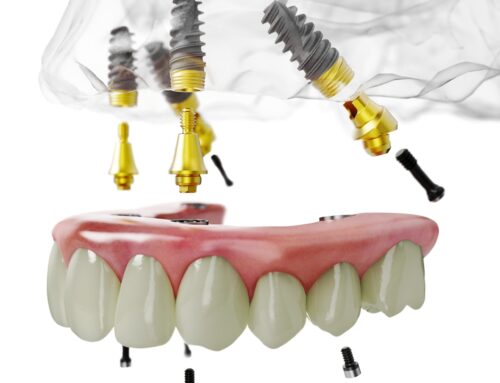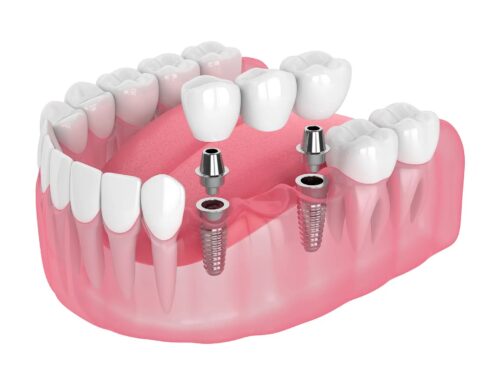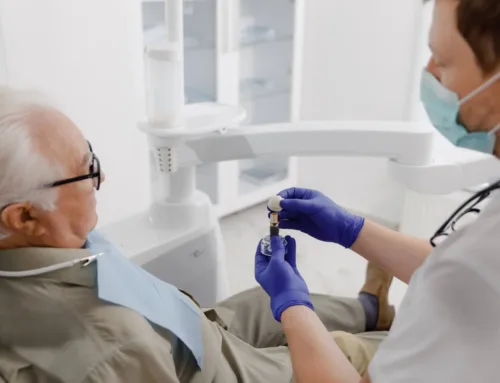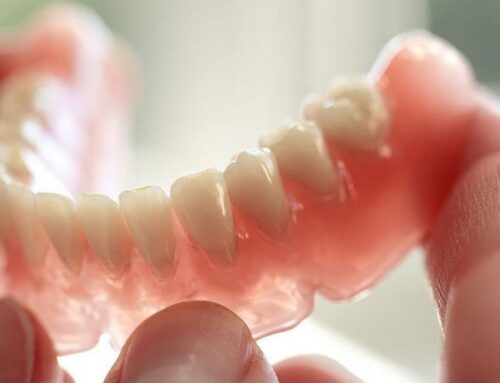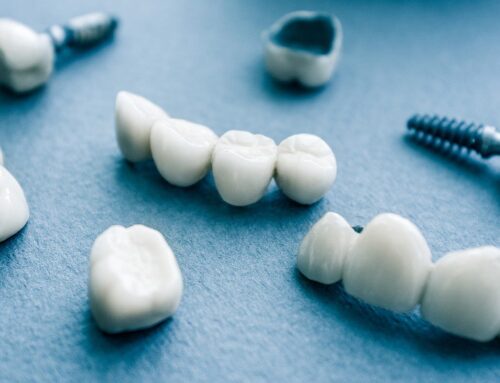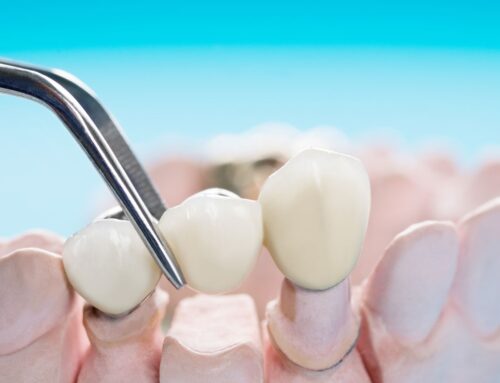Answers to Common Patient Questions About Dental Implants
Lost teeth can be very problematic if left untreated. There are many dental health issues that may develop as a result, so it’s imperative that action be taken to fix lost or missing teeth. This can be done in several different ways, but one of the most popular and effective approaches is through the use of dental implants. Naturally, as with any major dental procedure, it’s common for patients to have many questions about what they can expect.
There are a wide range of reasons as to why someone may have lost one of their permanent teeth. It could be due to tooth decay advancing to the point where a filling is not sufficient to solve the problem. Another reason could be a sudden impact or accidental fall that results in a tooth being knocked out of the jaw. In other cases, patients who have gum disease, also known as periodontitis, may notice teeth becoming so loose in the gums that they eventually fall out entirely. In all of these situations, it’s absolutely essential that the lost tooth be replaced as promptly as possible.
When someone does find themselves in a position where they are in need of a tooth replacement, the dentist will endeavor to ensure they are informed about the procedure in detail. Patients should feel confident that they understand the entire scope of the dental implant treatment, and that means having all their questions answered. Here are the most common questions we receive from patients about dental implants, along with the answers to help provide clarity and transparency on what to expect.
“Do I really need to replace a lost tooth, or is it no big deal?”
There are several important reasons why lost teeth need to be replaced. First, lost teeth create a noticeable effect on the patient’s smile, as the large gap can be very visible when talking, eating, and smiling. This can negatively influence a persons’ self-confidence, making them feel the need to be more reserved in social situations and less likely to engage in conversations or group activities.
Lost teeth can also make it more difficult to eat certain types of foods. Lost front teeth make biting more challenging, and lost molars increase the difficulty and efficiency of chewing and grinding food. Both of these effects can impact a person as they may need to avoid certain foods, possibly reducing the nutritional quality of their diet. Talking can also be altered due to missing teeth, creating speech impediments, lisps, or other speech problems that the person did not experience prior to losing a tooth.
The most medically serious effect of lost teeth is the potential loss of bone density in the jaw. You see, the roots of natural teeth extend deep into the jaw. When a person is chewing food and talking, the pressure exerted on the teeth works to stimulate the jawbone in the surrounding area, encouraging the body’s natural processes to strengthen the area and reinforce the bone with increased density. The absence of teeth equals the absence of this stimulating pressure, and can gradually result in decreasing bone density over time.
“What are the different options to replace a lost tooth?”
Teeth can be replaced in several different ways, depending on the nature of the situation and the condition of the patient’s dental health.
Dental Bridges – A dental bridge is an artificial tooth that is supported on either side by the natural teeth adjacent to the gap created by the missing tooth. Dental bridges are made from a natural-looking dental ceramic composite material, and are a viable option for addressing the problem of a single lost tooth in patients with a generally good state of dental health and strong natural teeth on either side of the gap.
Dental Implants – Instead of mounting the replacement tooth to the adjacent teeth, a dental implant is embedded directly into the jawbone of the patient. First, an anchor post is surgically fitted into the space in the jawbone where the missing tooth was. This post is made from a special metal composite material that fuses and bonds with the surrounding bone, creating a very strong foundation for the replacement tooth. On top of the anchor post, a replacement tooth crown is mounted, sculpted and coloured to match the appearance of the natural teeth in the patient’s mouth.
Dentures & Partial Dentures – In the case of multiple lost teeth, a denture may be used. Dentures are artificial teeth mounted on to a single-piece base to create a replacement tooth prosthesis. Dentures are usually adhered to the gums using a temporary adhesive so the prosthesis can be removed by the patient for cleaning and then re-attached. Full dentures generally replace a full top or bottom arch of teeth, or both, whereas partial dentures are designed to replace a smaller number of teeth.
Implant-Supported Dentures & All-on-4 Dental Implants – While similar in appearance to regular dentures, implant-supported dentures are not attached to the gums using adhesives, but are mechanically fixed to a series of dental implants embedded into the jaw of the patient. Implant-supported dentures can be used to replace multiple missing teeth, or the entire top and bottom arches for a full-mouth reconstruction.
In these types of whole-mouth rebuild situations, the All-on-4 dental implant procedure is often recommended. In an All-on-4 treatment, four precisely-positioned dental implants are surgically embedded into each of the top and bottom jaws. To these implants, arches of artificial teeth are mounted, providing the patient with a completely new set of teeth with full mouth function restored.
“Why would a dental implant be used instead of the other methods?”
Although bridges and dentures offer effective solutions to many of the problems of lost teeth, such as chewing function and visual appearance of the smile, they are not able to address the issue of potential bone density loss as they are not directly inserted into the jawbone. Dental implants, on the other hand, are able to replicate the stimulation of natural teeth, thereby minimizing the possibility of weakening in the jaw and providing greater strength.
In addition, dental implants offer far greater stability for the patient when chewing, allowing them to eat a wider range of foods than perhaps would have been possible with dentures or bridges. Dental implants are also more natural-looking than other alternative tooth replacement methods. As the implant is situated deep in the gums as normal teeth are, they are virtually indistinguishable from the rest of the patients teeth.
“Can I get a dental implant for a lost front tooth, or are they only used for back teeth?”
There are many situations where a dental implant can be used to replace a lost front tooth. The main consideration in determining if a dental implant is suitable for a front tooth replacement is the stability and structure of the bone in that area of the jaw. Typically, the front of the jaw has a narrower bone profile than the sides and back of the jaw, so it’s important to ensure there’s enough material to form a properly strong bond with the implant. In most cases, there is no cause for concern. However, if it is determined that the existing bone is not sufficient for a dental implant, the dentist may recommend a bone graft to increase the strength of the jaw in that area, or might suggest an alternate tooth replacement method.
“Will a dental implant last forever, or will it need to be replaced in the future?”
Yes! Dental implants are a permanent solution to the problem of lost and missing teeth. Once in place, the anchor post of a dental implant will fuse directly with the bone material in your jaw, creating a very stable and secure connection. Your dentist will inspect the dental implant as part of your regular dental care appointments and monitor the area for any changes, but proper oral care habits will help ensure your dental implant stays in perfect condition for a lifetime.
“Are dental implants covered by insurance, and how much do they cost?”
The cost of dental implants can range significantly depending on the needs of the patient, however in general they start around $1000 for a single tooth. If other treatments are needed to prepare the area before the implant procedure can be done, these will need to be factored in as well. For more extensive dental implant procedures, such as implant-supported dentures, costs start around $2000 and can go upwards of $10,000 in some situations. For total mouth constructions using the All-on-4 dental implant procedure, costs can range from $20,000 to $30,000.
Many dental insurance plans will have coverage in them for dental implants or tooth replacements, but the amounts of coverage can be very different from policy to policy. It’s best to contact your benefits provider directly to obtain the specifics on what type of dental implant work is covered. Alternatively, there are also financing options available that can make managing the costs much easier. Georgian Dental offers in-house dental cost financing programs for patients to help simplify the process of obtaining the dental care that is needed, and provide flexibility based on the finances of the patient. Contact us today to find out more about dental treatment financing!
“Will anyone be able to tell I have dental implant, or do they look natural?”
Very much so, yes. Dental implants are custom-crafted for each patient to match the shape and shade of their natural teeth. The materials used to create the replacement tooth are ultra-strong dental ceramic composites, so they are extremely durable and resistant to staining and discoloration. Once the implant treatment is over and recovery has run its course, your dental implant will appear virtually identical to your other adjacent teeth.
“Is there usually a lot of pain after getting a dental implant?”
Not really, no. Like other dental surgical procedures, patients will be offered options for sedation based on the extent of the procedure and the needs of the patient. In some cases, it may just be necessary to apply a local anesthetic and freezing to prevent the pain. However, for more extensive treatments, nitrous gas sedation or general anesthetics may be used to reduce the awareness of the patient to the point where they won’t remember a thing from the procedure.
During recovery, patients will be provided with guidance on what to use for anti-inflammatory medications and pain relievers so they will be as comfortable as possible while healing. Prescriptions will be provided for any medications that may be needed. Most patients report no more discomfort than a general soreness and a little swelling in the area during the early stages of recovery, and these effects usually subside fairly quickly.
“How do I need to change my oral care routine if I have a dental implant?”
Caring for dental implants is very simple. In essence, you need to treat them the same as you do your natural teeth. This means maintaining a good at-home oral care routine, including regular brushing, flossing, and using antibacterial oral rinses to help keep the mouth clean and fresh. In addition, it’s essential to stick to the recommended schedule of dental appointments as set forth by your dentist. During your appointments, your dentist and hygienist will be sure to closely inspect the dental implant and surrounding area to ensure that there are no issues.
Don’t Wait to Replace Lost or Missing Teeth. Contact Georgian Dental Today!
There’s nothing good about a lost tooth. It simply causes problems, and really should be fixed. Dental implants are the solution that provides an optimum outcome for patients with lost teeth, restoring their smiles and giving them back the full function of their mouths. If you or someone you love is in need of a tooth replacement, now’s the time to make the call to the team here at Georgian Dental. We will be glad to schedule an appointment at your convenience to review your available treatment options and answer all your questions to the fullest. We look forward to helping you get your smile back in style!
Appointment Request
If you’re interested in any of our procedures, and would like to meet with one of our dentists to discuss options, costs and get additional information, complete this short form and we’ll give you a call to arrange for a no-obligation appointment at our Barrie clinic.
